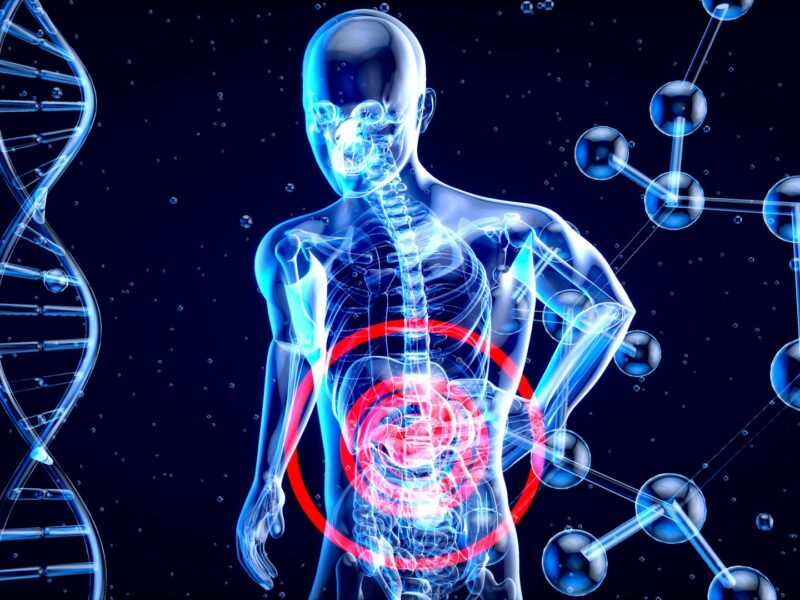Hormonal imbalance is a common condition that affects both men and women. However, the signs and symptoms of hormonal imbalance in men can often go unnoticed. Thus, understanding the signs is crucial to identifying and addressing the issue early on.
In this article, we will discuss five signs of hormonal imbalance in men that you should watch out for. These signs may range from physical changes to emotional disturbances, and can have a significant impact on your overall health and well-being.
Whether you are experiencing fatigue, mood swings, or sexual dysfunction, it’s important to recognize these symptoms and take action to correct the underlying hormonal imbalance. With the right treatment plan, you can restore balance to your hormones and improve your quality of life.
Read on to learn more about the signs of hormonal imbalance in men and how to fix them.
Contents
1. Low Sex Drive
Low libido is a common symptom of hormonal imbalance in men. It can be caused by a decrease in testosterone levels. Testosterone is the primary hormone responsible for a man’s sex drive.
If you’re experiencing a decrease in libido, it’s important to speak with your healthcare provider as they might suggest when to consider testosterone replacement therapy. This therapy can help increase your testosterone levels and improve your sex drive.
2. Erectile Dysfunction
Erectile dysfunction (ED) is another common symptom of hormonal imbalance in men. ED is the inability to maintain an erection. It can be caused by a decrease in testosterone levels, as well as other underlying health conditions.
Other hormonal imbalances, such as an excess of prolactin or cortisol, can also contribute to ED. ED can negatively impact a man’s quality of life and relationships. It’s important to talk to your primary doctor if you are experiencing ED symptoms, as it may be a sign of an underlying medical condition.
3. Loss of Muscle Mass and Strength
Testosterone is also responsible for building and maintaining muscle mass and strength. A decrease in testosterone can lead to a loss of muscle mass and strength. Other hormonal imbalances, such as an excess of cortisol or a deficiency in growth hormone, can also contribute to muscle loss.
This can negatively impact physical function and increase the risk of falls and injuries. Regular exercise, particularly resistance training, can help to maintain muscle mass and strength, but addressing underlying hormonal imbalances may also be necessary.
4. Increased Body Fat
Hormonal changes can disrupt the body’s ability to regulate fat storage and metabolism, leading to an increase in body fat. Imbalances in hormones such as testosterone, estrogen, insulin, and cortisol can all contribute to weight gain and an increase in body fat.
Excess body fat can lead to a range of health problems, including an increased risk of cardiovascular disease, diabetes, and other chronic conditions. Addressing underlying hormonal imbalances, adopting a healthy diet, and regular exercise can all help to reduce body fat and improve overall health.
5. Mood Changes
Hormonal imbalances can also affect your mood. Low testosterone levels can lead to depression, irritability, and other mood changes. It’s important to speak with your healthcare provider if you’re experiencing any mood changes.
They may suggest counseling or medication to help manage your symptoms. Testosterone replacement therapy may also be an option to help improve your mood.
6. Hair Loss
Hair loss is a common sign of hormonal imbalance in men. This condition is also known as male pattern baldness or androgenetic alopecia. The male hormone testosterone can be converted into a potent form called dihydrotestosterone (DHT) by an enzyme called 5-alpha-reductase.
DHT can then bind to hair follicles and shrink them, which can lead to hair thinning and eventual hair loss. Other hormonal imbalances, such as thyroid disorders or high levels of cortisol, can also contribute to hair loss.
7. Insomnia
Insomnia is a sleep disorder that can be a symptom of hormonal imbalance in men. Hormonal changes, such as those that occur during menopause or andropause, can disrupt the body’s natural sleep-wake cycle, leading to insomnia.
Additionally, imbalances in hormones like cortisol, melatonin, and thyroid hormones can also contribute to difficulty sleeping.
Taking a Quick Recap
Hormonal imbalances can affect men’s health in various ways. If you’re experiencing any of the symptoms discussed in this article, it’s important to speak with your healthcare provider. They can help diagnose and treat your hormonal imbalances effectively.
Treatment options may include testosterone replacement therapy, medications, lifestyle changes, and counseling. Taking steps to manage your hormonal imbalances can help improve your overall health and quality of life.



